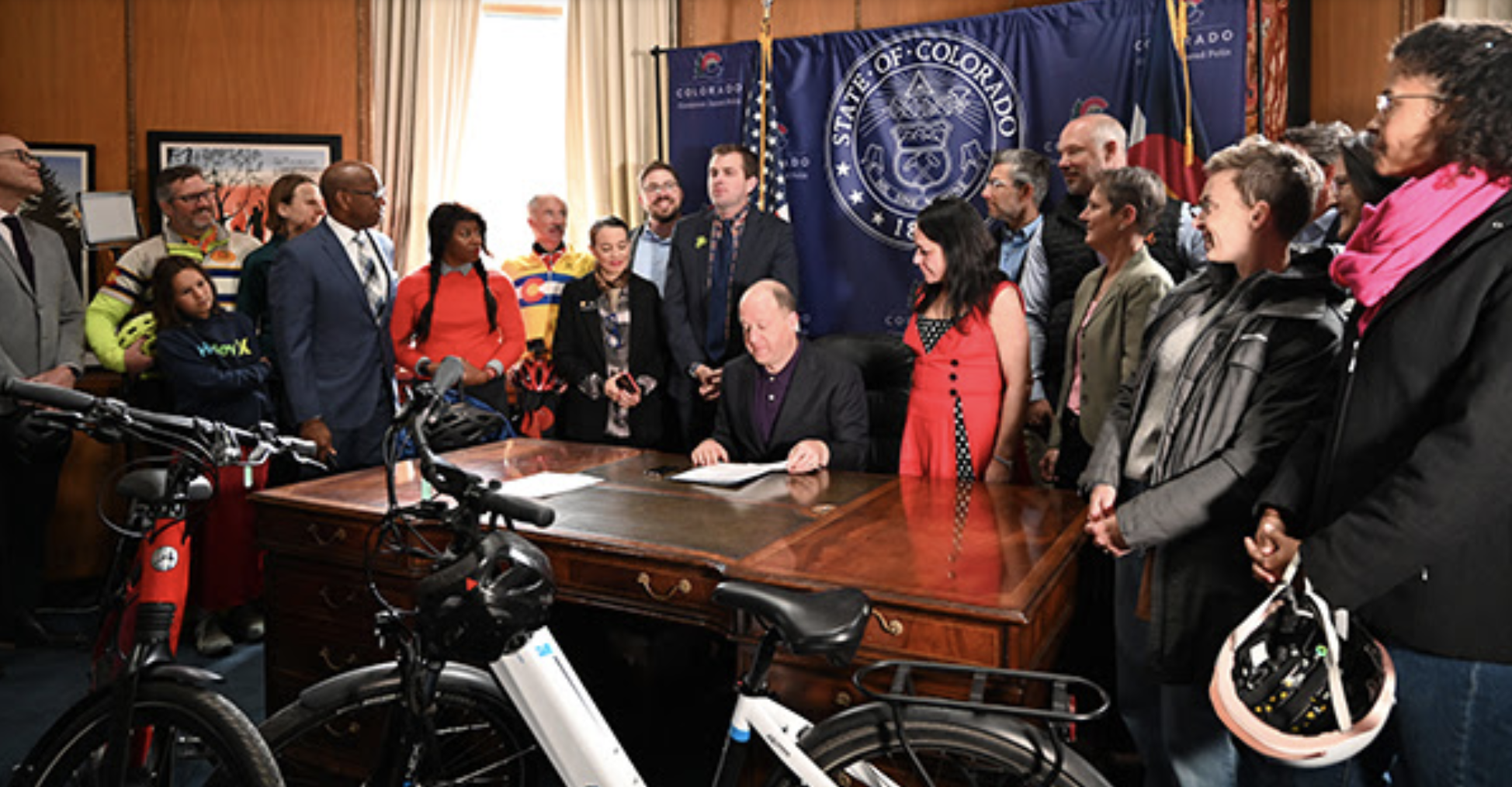 As we reported in our 2022 Legislative Agenda post back in January, HB22-1028 was introduced this session intended to make the law, passed in 2018, that makes it legal for bicyclists to not have come to a complete stop at stop signs, or to treat red lights as stop signs, as long as the coast is clear for them to proceed. Commonly referred to as “Safety Stop,” “Stop as Yield,” or the “Idaho Stop,” the 2018 law left the decision of whether to adopt the ordinance to individual counties or municipalities. Since then, neither Larimer County, nor the City of Fort Collins ever elected to adopt the law.
As we reported in our 2022 Legislative Agenda post back in January, HB22-1028 was introduced this session intended to make the law, passed in 2018, that makes it legal for bicyclists to not have come to a complete stop at stop signs, or to treat red lights as stop signs, as long as the coast is clear for them to proceed. Commonly referred to as “Safety Stop,” “Stop as Yield,” or the “Idaho Stop,” the 2018 law left the decision of whether to adopt the ordinance to individual counties or municipalities. Since then, neither Larimer County, nor the City of Fort Collins ever elected to adopt the law.
This year, HB22-1028, formally titled Statewide Regulation of Controlled Intersections, essentially proposed removing that clause, and simply make it a statewide law. Since being introduced on January 12, the Bill passed in the House of Representatives in late February (February 22), passed in the Senate in late March (March 21) and was officially signed into law by Governor Polis on April 13.
However, while making its way through the process, the following revisions or amendments to the law were also made:
- It reduced the speed in which bicyclists (or operators of low-speed conveyances, as the text officially reads) must slow-down to when yielding at a stop sign, from 15 mph to 10 mph.
- It added an age restriction, stating that the law only applies to anyone who is fifteen years of age or older, or who is under fifteen years of age and is accompanied by an adult.
- It added that if a county or municipality has a traffic sign or traffic control signal that provides specific instructions (whether existing now, or added in the future), contrary to the law, for bikes or any low-speed conveyance, that the posted sign instructions supersede the law.
Despite Fort Collins’ historical bike friendliness and the success of this law dating back to 1982 (when Idaho adopted it), the premise behind this law has been controversial in Fort Collins in each of the recent two times it’s been up for consideration, in 2013 and 2018. A critical point of opposition in 2018 by groups like the City’s Bicycle Advisory Committee (BAC) was the notion of uniformity within the region. There was concern that if Fort Collins adopted it, but neighboring municipalities like Loveland, Tinmath, Wellington, etc. didn’t, it would be difficult to know when individuals were in-or-out of the law’s jurisdiction. Additionally, there was consistent concern on both occasions on how the law would impact the teaching safe cycling to youth, given the level of judgement it requires.
With the Bill this year, Bike Fort Collins supported it, but was one of what it knows to be at least several organizations statewide who supported it with the caveat that we’d like to see an age restriction added to the law, as BFC delivers all the Safe Routes to School programming to PSD schools within the city. The City’s current Bicycle Advisory Committee (BAC) also supported it with this amendment.
That said, the City’s Legislative Review Committee (LRC) opposed it, initially citing the following as their reasons:
- Home Rule Control (referring to the transfer of authority over municipal matters from state laws to a local charter that’s drafted, adopted, and amended by voters in the municipality).
- Concern for youth ridership and education.
- Concern for how to address implementation along state highways (since two run through the city).
While all were addressed in the Bill that was ultimately passed, Home Rule Control was not (and naturally couldn’t be), and the LRC remain opposed accordingly.
Mayor Arndt, who BFC appreciates for her bike-friendliness given her background in bicycling and her position on bicycle-related issues during her campaign, explained to The Coloradoan in an article on April 8 that “we would be better served focusing on reconceptualizing the biking experience through such things as separated bike lanes and other safety strategies” (than passing the Safety Stop law). Bike Fort Collins supports and agrees with both: the passing of the Safety Stop statewide, AS WELL AS reconceptualizing the biking experience and focusing on safer streets and improving the infrastructure with separated bike lanes, etc.
BFC believes this new law will make bicycling safer in Fort Collins, as most bicyclist-motorist conflicts happen at intersections. The law now legally allows bicyclists the ability to clear an intersection and eliminate any potential conflict with motorists because they won’t be there to have one.
A big thanks to Bicycle Colorado for their initiative, leadership, and advocacy at the state level to get this Bill passed. Colorado is now one of nine states in the country to adopt the law statewide: Idaho (1982), Delaware (2017), Oregon (2019), Arkansas (2019), Washington State (2020), North Dakota (2021), Oklahoma (2021) and Utah (2021).
HB 22-1104: Powerline Trails Also Passes
We are also pleased to report that the Powerline Trails legislation that requires utility companies to provide detailed guidance to communities on the development of long distance, multi-use paths under powerlines in order to satisfy permit requirements passed.
